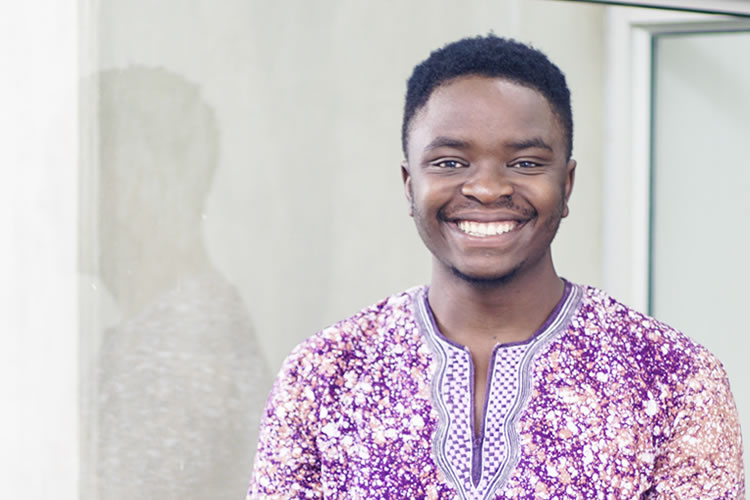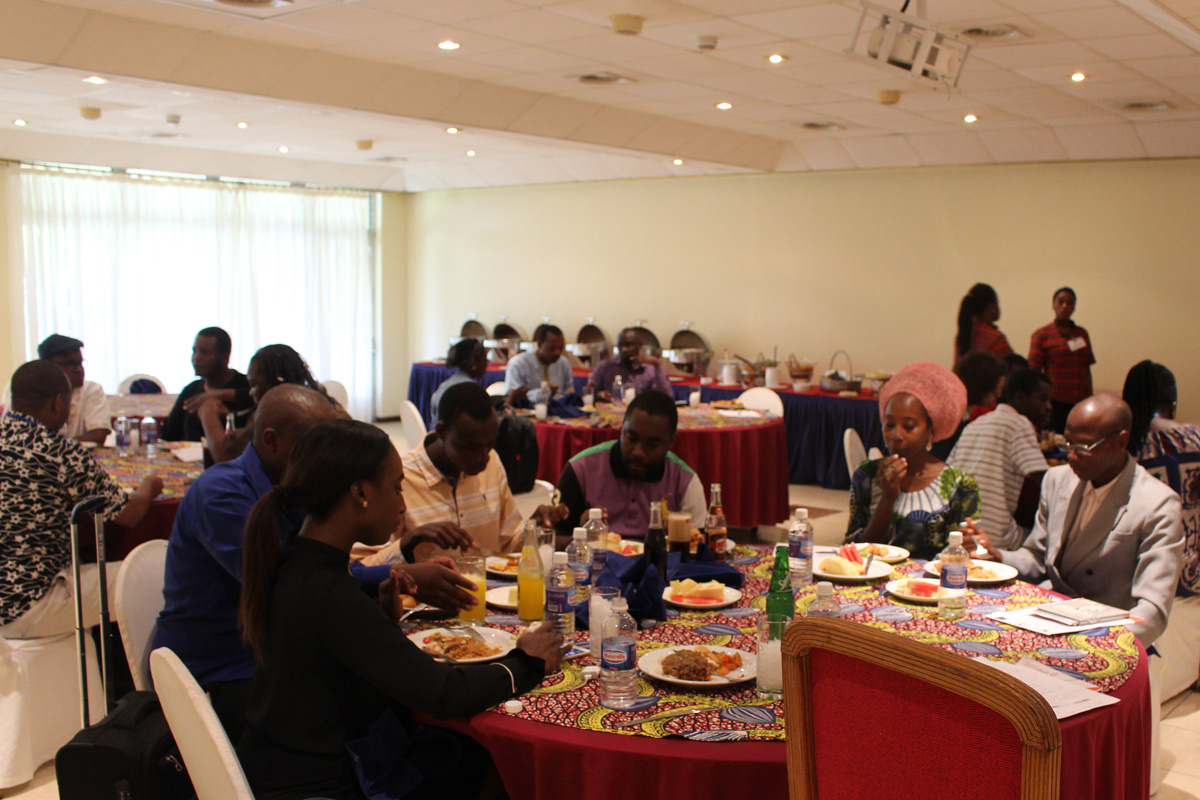On Saturday 4 November 2017, the Centre for Human Rights (Centre) in partnership with Iranti-org and SIPD -Uganda convened a panel discussion on intersex human rights in Banjul, The Gambia. The event came on the side-lines of the 61st ordinary session of the African Commission on Human and Peoples’ Rights (African Commission) which is taking place from 1-15 November. This was monumental considering that the African Commission is celebrating its 30 years anniversary and achievements ever-since it became operational 30 years ago.
The discussion titled ‘Intersex human rights: Challenges and opportunities’ sought to raise awareness on the plight of intersex persons in Africa and further to devise strategies of engaging the African Commission in influencing legislative and policy changes on intersex human rights in member states to the African Charter on Human and Peoples’ Rights (African Charter).
Intersex persons in Africa continue to face human rights violations which include non-consensual medically unnecessary genital normalising surgeries and genital mutilation on minors; infanticide and baby abandoning; lack of appropriate legal recognition and administrative processes allowing intersex persons to acquire or amend identity documents; and unfair discrimination in schools, health care facilities, competitive sports, work, access to public services, detention and many other spheres of life.
The panel was graced by Commissioner Lawrence Mute of the African Commission. Other members of the panel included Wendy Isaak from Human Rights Watch, Tapiwa Mamhare from the Centre and Joshua Sehoole from Iranti. The event was moderated by Monica Tabengwa.
Participants were drawn from a diverse group of NGOs and local media houses. State delegates were also present. The NGOs that participated included Human Rights Watch, Amnesty International, Institute for Human Rights Development in Africa (IHRDA), African Men for Sexual Health and Rights (AMSHeR), TransSmart Trust, The Initiative for Equal Rights (TIERs), Kenya Human Rights Commission (KHRC), Gambia Association for the Deaf and Hard Hearing, Centre for the Study of Violence and Reconciliation (CSVR) and Iranti. Two state delegate representing Malawi Ministry of Justice and Malawi Police Service were also present. Local media houses present included The Mirror, Gambia Press Union, Foroyaa Newspaper and Standard Newspaper.
First to speak on the panel was Joshua who made a presentation on exploring intersex identity, impact of non-consensual genital normalising surgeries on minors and the global trends on the protection of the rights of intersex persons. His presentation was stimulated by a captivating film which chronicled the lived experiences of two intersex individuals from Uganda and South Africa. Gathering from the mood in the room and the interjections that followed, indeed the movie sensitised participants who were coming across intersex issues for the first time.
He defined intersex persons as, ‘people born with sex characteristics including genitals, gonads, chromosome patterns that do not fit typical binary notions of male or female bodies.’ Joshua also spoke on the prouncements by United Nations (UN) , for example the Special Rapporteur on torture and other cruel, inhuman or degrading treatment or punishment who pronounced that ‘ intersex children are subjected to irreversible sex assignment, involuntary sterility, involuntary genital normalizing surgery without their informed consent, or that of their parents, in an attempt to fix their sex, leaving them with permanent, irreversible infertility and causing severe mental suffering.’
Wendy Isaack from Human Rights Watch had the opportunity to share findings from their report titled ‘I want to be like nature made me: Medically unnecessary surgeries on intersex children in the US.’ The 190 paged report is so far one of the biggest reports published by the organisation. While the focus of the report is on the United States (US), the findings in the report assist in drawing parallels between Africa and the US on how to combat some of the human rights violations perpetrated against intersex persons. One of the recommendations from the report is the banning of all surgical procedures that seek to alter the gonads or genitals of children with atypical sex characteristics too young to participate in the decision, when those procedures both carry a meaningful risk of harm and can be safely deferred. Such a law must also provide for appropriate support services for people who have been subjected to these operations, including access to health care and to social and psychological support.
The guest speaker Commissioner Mute welcomed the idea of intersex rights advocates coalescing at the African Commission, considering that the African Commission is working on the protection and promotion of human rights including of the most vulnerable groups. He acknowledged that from the nature of the human rights violations a lot of work had to be done at national level and that clearly the African Commission had a role to play in setting the minimum standards that guide legislative and policy development at domestic level. One of the avenues is the institutional practice of the African Commission of issuing soft law standards on a number of human rights issues which require attention.
Commissioner Mute was also concerned by the conflation of intersex and other LGBT issues. ‘You have to do a lot of work in clarifying and explaining what intersex is all about. There is a lot of conflation maybe arising from the acronym LGBTI.’ He gave an example of the case R.M v Attorney-General and Others Petition 705 of 2007 in Kenya in which the judge delved into issues dealing with other sexual minorities when clearly the person in the case was an intersex person. Wendy concurred to this articulating that Commissioners should also be sensitised on intersex issues so that they get better informed.
Monica chipped into the discussion highlighting that there were circumstances were it is necessary to collaborate with other sexual minority groups for solidarity purposes. However there are also circumstances were it can do harm. Last but not least Commissioner Mute asked for concrete recommendations which are specific and direct to the victim.
Wrapping up the panel discussion was Tapiwa from the Centre who presented on the current legal context in Africa on the rights of intersex persons. He talked about the dearth in legislation in the majority of African countries on intersex human rights and the need for states to urgently put measures by:
- Prohibiting genital mutilation and medically unnecessary surgery or procedures on the sex characteristics of intersex children and to protect their physical integrity and respect their autonomy.
- Putting an end to infanticide and baby abandonment of intersex children.
- Prohibiting discrimination on the basis of intersex traits, characteristics or status including in education, health care, employment, competitive sports, access to public services and addressing the root causes of such discrimination through relevant anti-discrimination initiatives.
- Enacting laws and adopt administrative processes allowing intersex persons to amend sex markers on birth certificates and official documents.
- Ensuring that intersex people have the right to full information and access to their own medical records and history.
- Ensuring that human rights violations against intersex persons are investigated and alleged perpetrators prosecuted and that victims of such violations have access to effective remedy, including redress and compensation.
- Providing health care personnel with training on the health needs and human rights of intersex persons and on the appropriate advice and care to give to parent and intersex children being respectful of the intersex person’s autonomy, physical integrity and sex characteristics.
- Ensuring that members of the judiciary, immigration officers, law enforcement, health care, education and other officials and personnel are trained to respect and provide equal treatment to intersex people.
Gathering from the discussions that transpired in the meeting and on the side-lines of the meeting there is an urgent need for the African Commission to act and protect the rights of intersex persons. The visibility of intersex persons must be increased at the next sessions of the African Commission by including them in the discussions within the main NGO Forum or the ordinary session of the African Commission.
Lastly, we would like to thank all those who accepted our invitation and participated in the discussions despite having other commitments. We would also like to thank SIPD-Uganda which was involved in the initial planning of this event and its continued support.
For more information, please contact:

Tapiwa Mamhare
Project Officer: SOGIESC Unit


